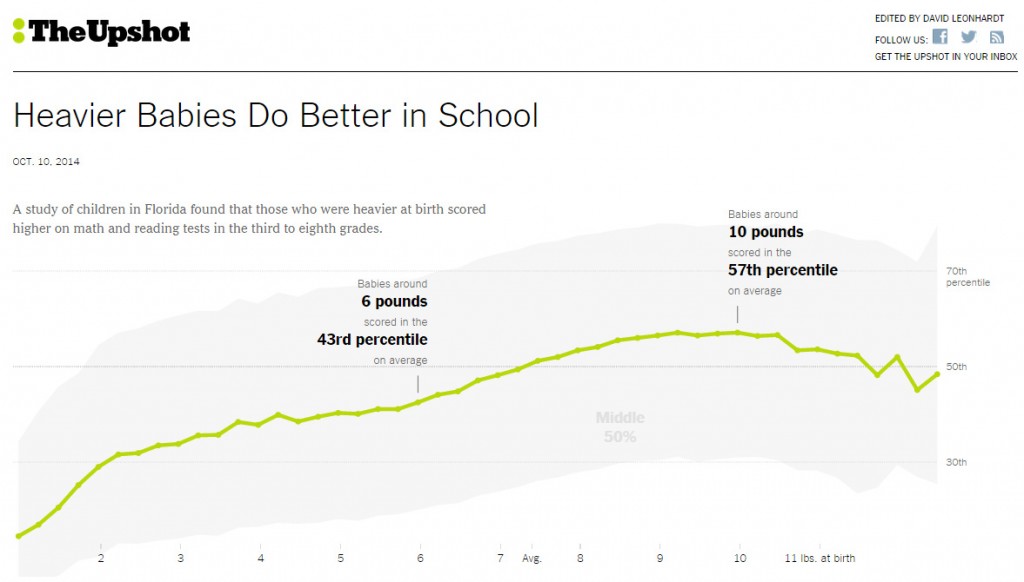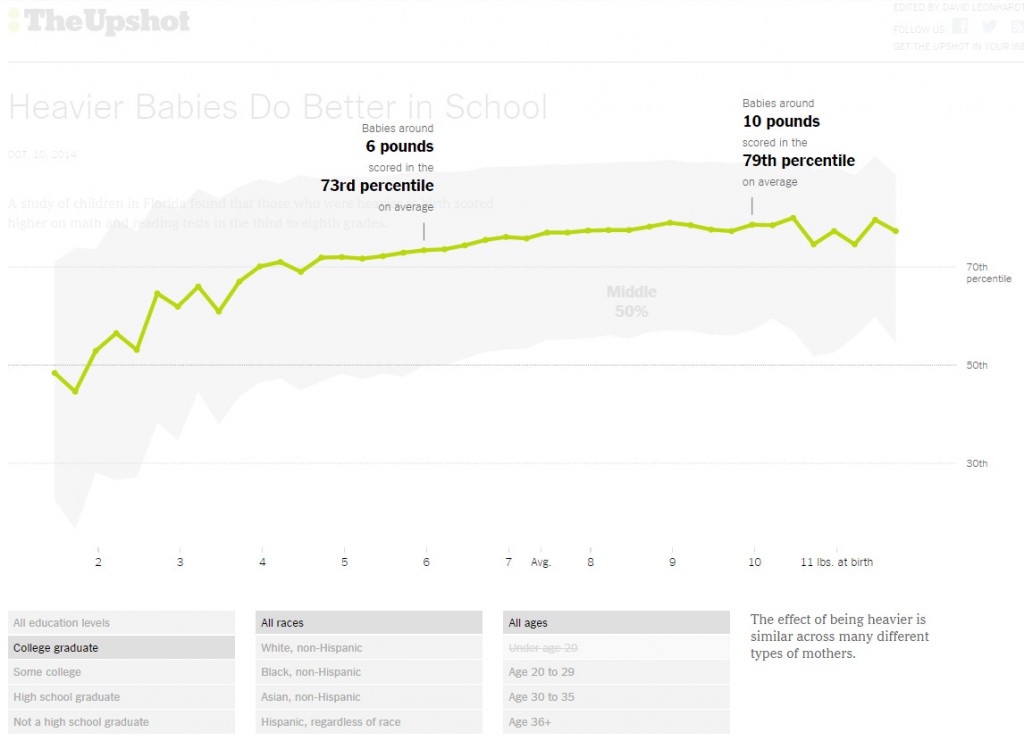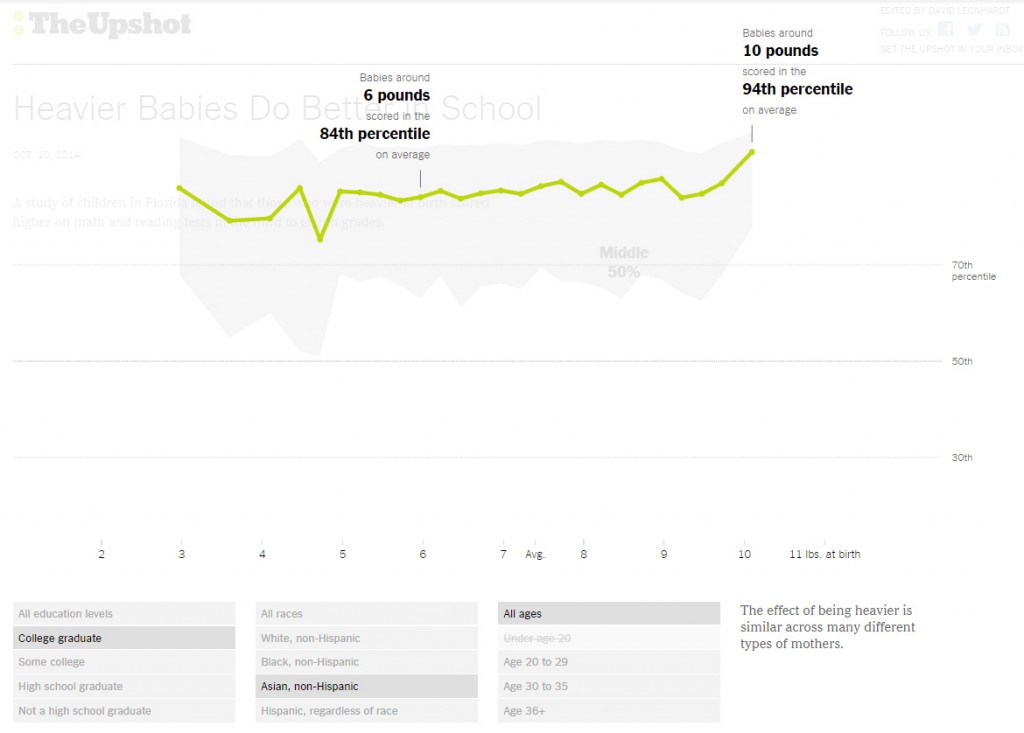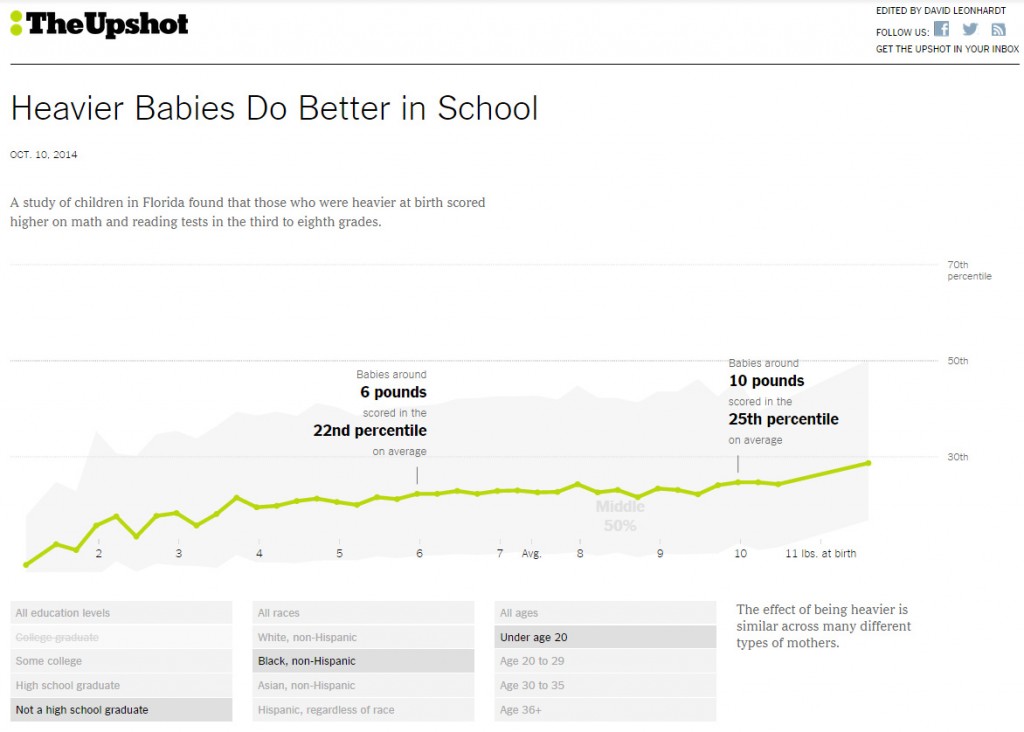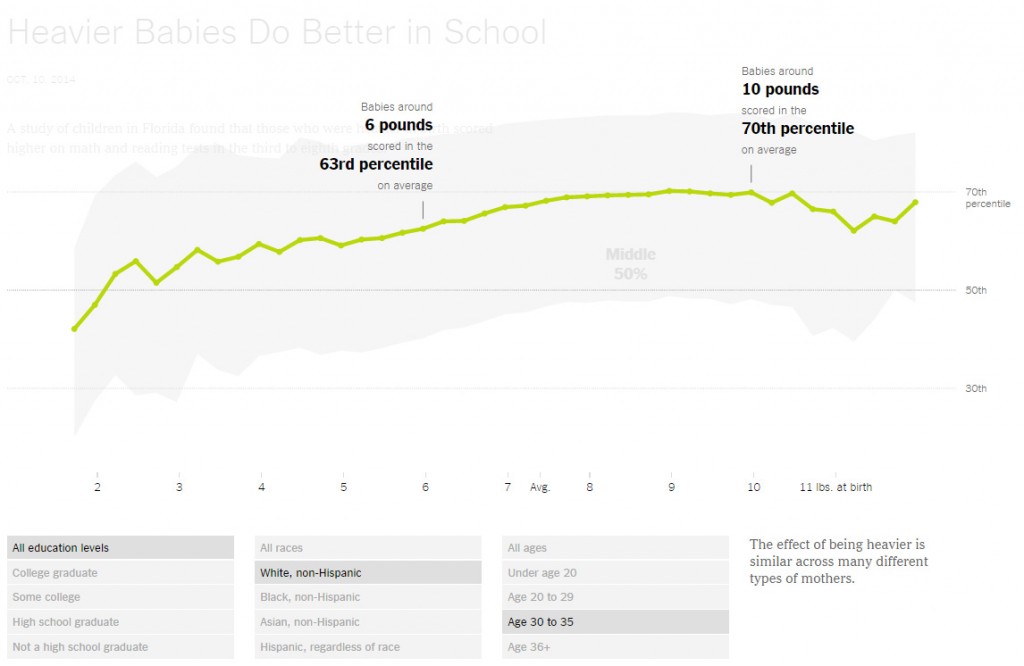The NYT blog “The Upshot” put together a story and a dynamic chart published Oct. 10 that encapsulates a ton more information than at first glance. Play with the variables and think about what it’s really telling us.
The story, “Heavier Babies Do Better in School” by David Leonhardt and Amanda Cox, is about a neonatal health study by Daid N. Figlio of Northwestern University and colleagues. It looked at third- through eighth-grade math and reading tests of children in Florida and compared scores to the birth weights of those kids.
The top line (screen print above) is shows a cool new correlation. The green line shows that babies who weighed six pounds at birth scored in the 43rd percentile; those who weighed 10 pounds came in at the 57th percentile.
But there’s a lot more to this, one that underscores just how extreme the role the accident of birth plays in your performance and, by extension, your future (assuming high academic performance translates long-term into better jobs, better pay, and better accidents of birth for your children).
Play with the buttons below the graphic. You can adjust education level, race, and the age of the mother. Here’s what it looks for for mothers who are college graduates:
Birth weight becomes a rounding error.
Birth weight matters even less to the babies of Asian mothers with college degrees:
Look how high above the mean the mean scores are. The six pound baby and the 9.2 pound baby both score in the 84th percentile.
Now, take a look at the unwed black teen mom numbers:
Also flat as far as baby weight. But really, really low. The kids of black, non-Hispanic moms under age 20 without a high-school degree will average somewhere below the 25th percentile on these tests, and presumably a lot of others.
And then look for yourself. My wife was 34 when we had our first.
On average, the child could expect to score in the 80th percentile, regardless of weight (she was a nine-pounder).
The factors behind these numbers are complex — biological, sociological, economic. They don’t show the outliers (the gray band shows only the middle 50 percent). But they’re real, and they show how, without a lot of help, where you came from is where you’ll end up.

